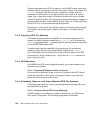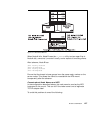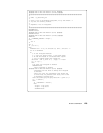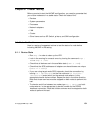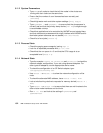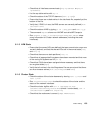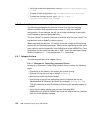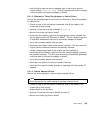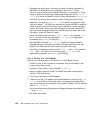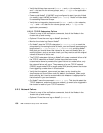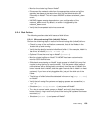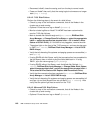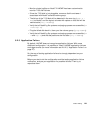
134 IBM Certification Study Guide AIX HACMP
• Verify the cluster configuration by running /usr/sbin/cluster/diag/clconfig
-v ’-tr’.
• To show cluster configuration, run:
/usr/sbin/cluster/utilities/cllscf.
• To show the clstrmgr version, type:
snmpinfo -m dump -o
/usr/sbin/cluster/hacmp.defs clstrmgr
.
6.2 Simulate Errors
The following paragraphs will give you hints on how you can simulate
different hardware and software errors in order to verify your HACMP
configuration. As an example, we will use a cluster consisting of two nodes
and a cascading resource group definition.
The term “NodeF” is used for the node to be failed, and the term “NodeT” for
the takeover node of NodeF's resource group.
When executing the test plan, it is helpful to monitor cluster activities during
failover with the following commands. Note that the /tmp/hacmp.out file is the
most useful to monitor, especially if the Debug Level of the HACMP Run Time
Parameters for the nodes has been set to “high”, and if the Application Server
Scripts include the
set -x flag and periodic echo commands.
6.2.1 Adapter Failure
The following sections cover adapter failure.
6.2.1.1 Ethernet or Token Ring Interface Failure
In case of an Ethernet or Token Ring interface failure, perform the following
steps:
• Check that all the nodes in the cluster are up and running.
• Optional: Prune the error log on NodeF (
errclear 0).
• Monitor the cluster log files on NodeT.
• Use ifconfig to shut off the appropriate service interface (but not the
Administrative SP Ethernet) on NodeF (for example,
ifconfig en0 down).
This will cause the service IP address to failover to the standby adapter on
NodeF.
• Verify that the swap adapter has occurred (including MAC
Addressfailover) and that HACMP has turned the original service interface
back on as the standby interface.



